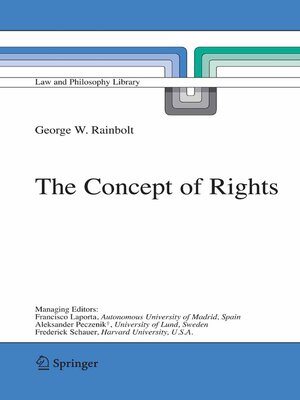
Sign up to save your library
With an OverDrive account, you can save your favorite libraries for at-a-glance information about availability. Find out more about OverDrive accounts.
Find this title in Libby, the library reading app by OverDrive.



Search for a digital library with this title
Title found at these libraries:
| Loading... |
Discussions of rights are ubiquitous. One constantly hears things such as: "The Chinese are violating Tibetan rights," "Landlords have a right that their tenants pay their rent," "Students have a right to be graded fairly," "Animals have a right not to suffer merely to bring pleasure to humans," "Abortion violates a fetus' right to life," "We violate the rights of future generations when we pollute the water. " These statements assert that Tibetans, landlords, students, animals, fetuses, and future generations all have rights. Tibetans, landlords, students, animals, fetuses, and future generations do not seem to have much in common. When one presses for clarity, it is very dif?cult to say precisely what a right is. What is it to have a right? That is the question this book seeks to answer. To paint with an overly broad brush, previous answers to this question can be divided into two groups. Some hold interest/bene?t theories of rights while others hold choice/will theories of rights. Perhaps the ?rst person to propose an interest/bene?t theory was Jeremy Bentham. Its most cited contemporary defender is Joseph Raz. The seminal statement of the choice theory was made by H. L. A. Hart. Carl Wellman is perhaps the most able defender of a will theory of rights. The debate between these two groups of theories has been a productive one.






